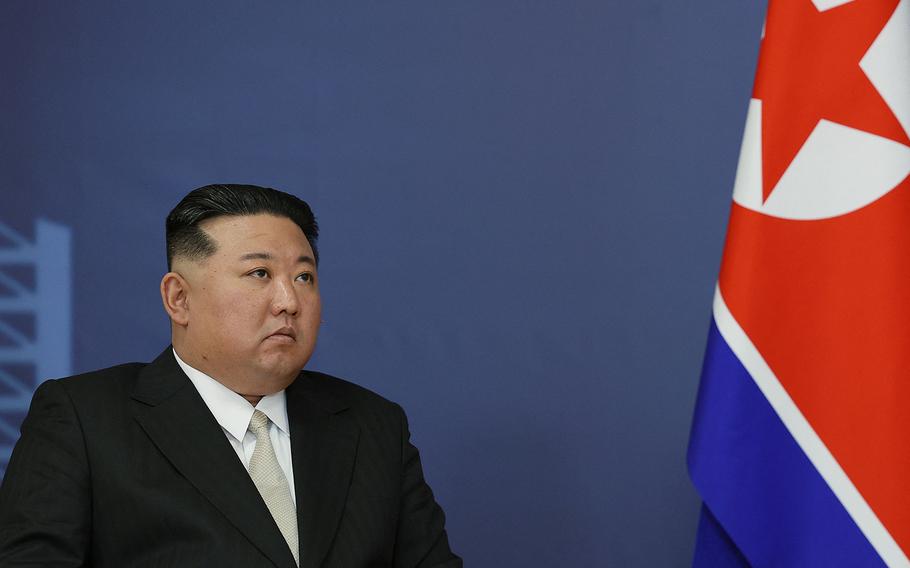
North Korea's leader Kim Jong Un is seen on Sept. 13, 2023. (Vladimir Smirnov, AFP/Getty Images/TNS)
(Tribune News Service) — North Korean leader Kim Jong Un inspected strategic missile bases and ordered the military to stay ready to deal a counterblow to enemies “at any time,” just two weeks ahead of the U.S. presidential election in an apparent move to raise its profile.
A photo released by the official Korean Central News Agency on Wednesday showed Kim speaking to an official while standing next to intercontinental ballistic missiles designed to deliver a nuclear warhead to the U.S. mainland.
North Korea has a habit of taking provocative actions, including conducting tests of ballistic missiles and nuclear devices, to coincide with the U.S. elections, and the latest visit appears aimed at drawing attention to its military might ahead of the Nov. 5 vote.
Kim said U.S. nuclear assets pose an “ever-increasing threat” to North Korea and demand Pyongyang to bolster its war deterrence to deal a strategic counterblow “to the enemies at any time in different circumstances,” the KCNA said.
“He stressed the need to further modernize and fortify the strategic missile bases and make all bases fully ready to keep thorough counteraction posture,” according to the state media.
The last time North Korea tested an ICBM was in December when it fired off the solid-fuel Hwasong-18 which splashed down west of Japan’s main northern island of Hokkaido. The class of missile is considered the most powerful in its arsenal.
Tensions in the Korean peninsula have risen in the recent weeks with South Korea complaining about trash balloons sent by North Korea, Pyongyang accusing the South of sending drones over its capital and the North’s blowing up of roads connecting the two countries. Seoul said last week that Pyongyang has sent troops to Russia to support its war on Ukraine. On Tuesday, South Korea raised the possibility of supplying weapons to Ukraine.
Solid-fuel ICBMs have the propellants baked into rockets, allowing them to be rolled out and fired in minutes, giving the US less time to prepare for interception. The challenge becomes even greater if the missile carries several warheads rather than one.
Still, it’s unclear whether the country’s ICBMs could beat US antimissile systems and are refined enough to strike their intended targets, as well as whether the warheads could survive reentry into the atmosphere.
©2024 Bloomberg L.P.
Visit bloomberg.com.
Distributed by Tribune Content Agency, LLC.